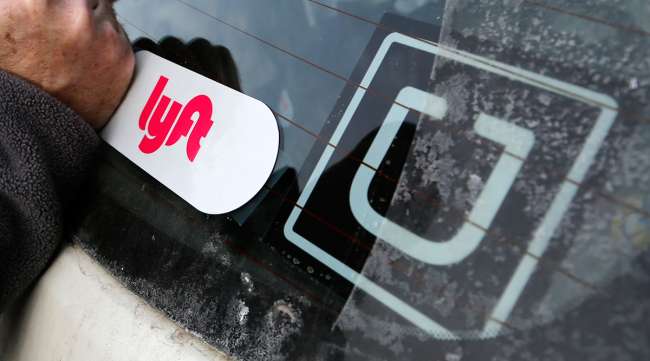Uber, Lyft Win Delay on Converting Drivers to Employees

[Stay on top of transportation news: Get TTNews in your inbox.]
Uber Technologies Inc. and Lyft Inc. were spared from having to rapidly convert their California drivers to employees after a state appeals court agreed Aug. 20 they can keep their business models in place while challenging a judge’s order to comply with a state labor law.
The decision is a big reprieve for the ride-hailing companies, whose leaders said they might need to temporarily shut down in their home state if forced on short notice to provide drivers with costly benefits including health insurance and overtime. Lyft had said earlier in a blog post Aug. 20 that it would suspend operations Aug. 21 at midnight in California. The appeals court scheduled arguments for Oct. 13.
Lyft shares rose as much as 8.6% on the news, while Uber’s stock gained 7.75%.

Natural gas and propane join electric power as alternatives to diesel. Host Seth Clevenger talks with Chad Lindholm of Clean Energy and Stuart Weidie of Alliance Autogas. Hear a snippet, above, and get the full program by going to RoadSigns.TTNews.com.
The delay buys time for the companies as they campaign for a ballot measure set for a statewide vote in November that would free app-based transportation and delivery companies from the sweeping requirements of the law known as Assembly Bill 5.
RELATED: California Trucking Association Continues Fight Against AB 5
Proposition 22 exempts the companies from paying for full benefits that employees currently get under California law, such as unemployment insurance and complete workers compensation, while requiring them to pay 120% of minimum wage, health care contributions and medical and disability coverage, among others.
San Francisco Superior Court Judge Ethan Schulman had refused Aug. 13 to indefinitely pause the injunction he issued earlier in the week.
AB 5 has wide-reaching implications across a number of other sectors, including the trucking industry. AB 5 would reclassify owner-operators as motor carrier employees. It was to have taken effect Jan. 1, but the California Trucking Association won an injunction banning implementation of the trucking component.
Anne VanderMey and Lizette Chapman contributed to this report.
Want more news? Listen to today's daily briefing:
Subscribe: Apple Podcasts | Spotify | Amazon Alexa | Google Assistant | More




